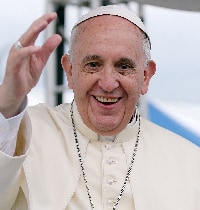Jamaica’s public sector urged to embrace regional integration
KINGSTON, Jamaica – As Jamaica works to meet all the obligations for the full establishment of the Caribbean Single Market and Economy (CSME), Head of the Legal Unit in the Ministry of Foreign Affairs and Foreign Trade, Michelle Walker, is encouraging the public sector to embrace the vision of regional integration and to transmit the same level of enthusiasm to the public.
“It’s integrate or perish,” Miss Walker told JIS News. Noting that the public sector played a critical role in advancing the integration process, she said “it is important first of all that we buy into the vision wholeheartedly, accept that ‘integrate or perish’ is what our reality is, and then find new ways of communicating that to the rest of the population, with whom we interact on a day-to-day basis.”
Miss Walker addressed the Friday Policy Forum to held at the Management Institute for National Development (MIND) on May 26, from 12:30 to 2:30 p.m., where she will spoke on the topic: ‘Outstanding Legal Issues in the CSME’. The audience will comprise primarily senior executives in the public and private sectors and academia.
Pointing out that there were certain obligations contained in the Revised Treaty of Chaguaramas, which should have been implemented in domestic law, Miss Walker indicated her intention to highlight some of the “thorny issues [relating to] free movement of persons, capital and the provision of services,” as well as the harmonization of intellectual property rights legislation, among other things.
Noting that the free movement of people was still a challenging issue, Miss Walker noted that despite the fact that the categories of persons, who were entitled to move freely and the conditions under which they should be entitled to do so have been established, “we continue to encounter administrative difficulties in various countries,” in terms of day-to-day implementation.
Meanwhile, she indicated that the harmonization of intellectual property rights laws, which was stipulated by the treaty, was affected by a number of hurdles. She explained, that not only were intellectual property rights laws very complex and took time to be passed, but there was a shortage of draftspersons in the region, and once you have the relevant legislation in place and it was serving the basic purposes for that society, asking countries to change the law, simply to harmonize it across the region, would be costly in terms of human resources.
She pointed out however, that the harmonization of these laws would ensure that “anyone who is a right holder, [such as musicians, composers and authors] will get the same kind of protection for their intellectual property rights in all the countries of the region”.
Further, being party to the World Trade Organisation (WTO), the region must consider compliance with the trade aspects of this agreement to avoid being brought before the courts by any other country that is a party to it.
The region must therefore determine whether it was absolutely imperative for the process to take place now or “is it something that we can aim for over time?” said Miss Walker.
Reiterating the importance of integration to the region, Miss Walker concluded that Jamaicans should “embrace our Caribbean heritage and be willing to fight as hard for the Caribbean as we are willing to do for Jamaica.” She said that by doing so “we will go a far way in ensuring that this process succeeds.”

